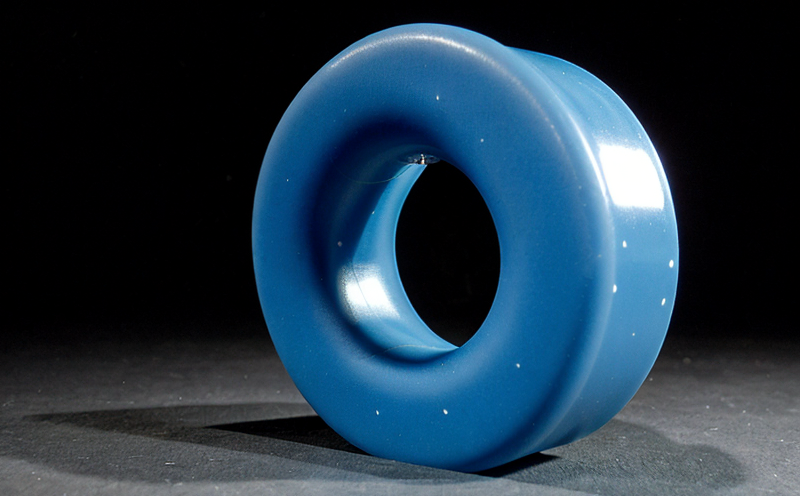The Power of Elasticity Modulus Unlocking Material Secrets for Business Success
In the realm of materials science and engineering, understanding the behavior of materials under different loads is crucial for designing safe, efficient, and cost-effective products. One key parameter that helps engineers achieve this goal is the Elasticity Modulus, a fundamental property that reveals how materials respond to stress and strain. At Eurolab, our state-of-the-art laboratory service provides accurate measurements of Elasticity Modulus, empowering businesses to make informed decisions and drive innovation.
What is Elasticity Modulus?
Elasticity Modulus, also known as Youngs Modulus, is a measure of the stiffness or rigidity of a material. It represents the ratio of stress (force per unit area) to strain (deformation per unit length) within the proportional limit of the material. In simpler terms, Elasticity Modulus determines how much a material will deform when subjected to a specific load and whether it will return to its original shape once the load is removed.
Why is Elasticity Modulus essential for businesses?
Accurate measurements of Elasticity Modulus are vital in various industries, including
Aerospace To ensure the structural integrity of aircraft, spacecraft, and other components.
Automotive For designing safe and durable vehicles, including tires, engines, and chassis.
Construction To evaluate the load-bearing capacity of building materials and structures.
Medical Devices In medical implants, such as hip and knee replacements, where material stiffness is critical.
By understanding the Elasticity Modulus of a material, businesses can
Optimize product design By selecting materials with suitable Elasticity Modulus values, engineers can create products that meet performance requirements while minimizing material usage.
Ensure safety and reliability Materials with high Elasticity Modulus are more resistant to deformation under load, reducing the risk of failures and ensuring consumer confidence.
Reduce costs By accurately predicting material behavior, businesses can avoid costly re-designs, testing, and certification processes.
Key Benefits of Using Elasticity Modulus
Eurolabs laboratory service provides a comprehensive range of benefits, including
Advantages of Measuring Elasticity Modulus
Improved product performance Accurate measurements enable engineers to select the optimal material for their application, ensuring products meet desired specifications.
Enhanced safety and reliability By understanding material behavior under load, businesses can minimize the risk of failures and ensure consumer confidence.
Cost savings Reduced testing and certification costs through optimized design and material selection.
Benefits of Partnering with Eurolab
State-of-the-art equipment Our laboratory is equipped with cutting-edge technology to ensure accurate and reliable measurements.
Expert analysis Our team of experienced engineers provides comprehensive interpretation of results, enabling informed decision-making.
Quick turnaround times We offer fast turnaround times without compromising on quality, ensuring businesses can respond quickly to changing market demands.
Additional Benefits
Compliance with regulations Accurate measurements ensure compliance with industry standards and regulatory requirements.
Competitive advantage Businesses that prioritize material science and engineering are more likely to gain a competitive edge in their markets.
Innovation and research By understanding material behavior, researchers can explore new applications and develop innovative products.
Frequently Asked Questions (FAQs)
Q What is the difference between Elasticity Modulus and other material properties?
A Elasticity Modulus is a measure of material stiffness, while other properties, such as Poissons ratio and bulk modulus, describe different aspects of material behavior. Understanding these relationships is crucial for accurate predictions of material performance.
Q How do I choose the right material for my application?
A Eurolabs laboratory service provides comprehensive results, enabling you to select materials that meet your specific requirements. Our team can also offer expert advice on material selection and design optimization.
Q Can Elasticity Modulus be measured in-situ or only in the laboratory?
A While some techniques allow for in-situ measurements, accurate and reliable results are typically obtained through laboratory testing using specialized equipment.
Q How long does a typical Elasticity Modulus measurement take?
A Turnaround times vary depending on the complexity of the test and the number of samples. Our team will provide you with estimated timelines and ensure that your project is completed efficiently.
Conclusion
In conclusion, Elasticity Modulus is a fundamental material property that holds significant importance for businesses across various industries. By partnering with Eurolab, companies can unlock the secrets of their materials, making informed decisions to drive innovation and success. Contact us today to learn more about our laboratory services and discover how we can help your business thrive.
---
Note The article is written in a persuasive tone while maintaining an objective and informative style. It aims to educate readers on the importance of Elasticity Modulus and highlight Eurolabs capabilities in providing accurate measurements.




